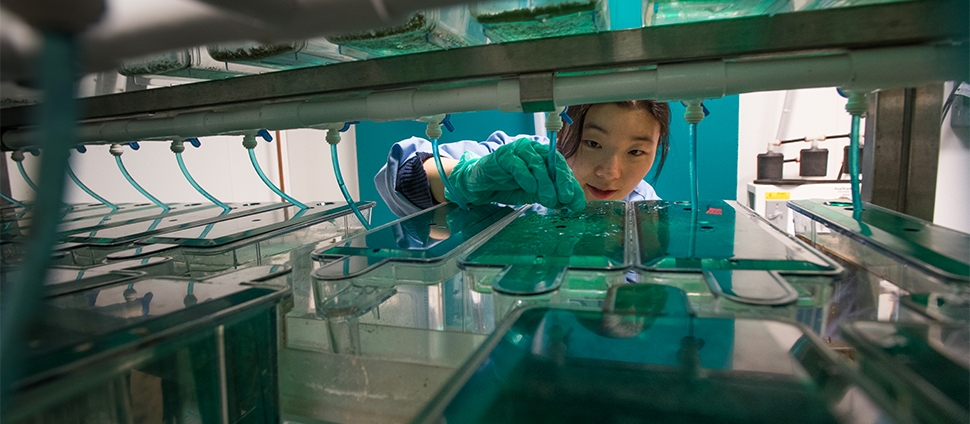Kif11 Dependent Cell Cycle Progression in Radial Glial Cells is Required for Proper Neurogenesis in the Zebrafish Neural Tube
This document has been relocated to https://scholarworks.smith.edu/mth_facpubs/79/
There were 17 downloads as of 2 Nov 2022.
Abstract
Radial glia serve as the resident neural stem cells in the embryonic vertebrate nervous system, and their proliferation must be tightly regulated to generate the correct number of neuronal and glial cell progeny in the neural tube. During a forward genetic screen, we recently identified a zebrafish mutant in the kif11 loci that displayed a significant increase in radial glial cell bodies at the ventricular zone of the spinal cord. Kif11, also known as Eg5, is a kinesin-related, plus-end directed motor protein responsible for stabilizing and separating the bipolar mitotic spindle. We show here that Gfap+ radial glial cells express kif11 in the ventricular zone and floor plate. Loss of Kif11 by mutation or pharmacological inhibition with S-trityl l-cysteine (STLC) results in monoastral spindle formation in radial glial cells, which is characteristic of mitotic arrest. We show that M-phase radial glia accumulate over time at the ventricular zone in kif11 mutants and STLC treated embryos. Mathematical modeling of the radial glial accumulation in kif11 mutants not only confirmed an ~226× delay in mitotic exit (likely a mitotic arrest), but also predicted two modes of increased cell death. These modeling predictions were supported by an increase in the apoptosis marker, anti-activated Caspase-3, which was also found to be inversely proportional to a decrease in cell proliferation. In addition, treatment with STLC at different stages of neural development uncovered two critical periods that most significantly require Kif11 function for stem cell progression through mitosis. We also show that loss of Kif11 function causes specific reductions in oligodendroglia and secondary interneurons and motorneurons, suggesting these later born populations require proper radial glia division. Despite these alterations to cell cycle dynamics, survival, and neurogenesis, we document unchanged cell densities within the neural tube in kif11 mutants, suggesting that a mechanism of compensatory regulation may exist to maintain overall proportions in the neural tube. We propose a model in which Kif11 normally functions during mitotic spindle formation to facilitate the progression of radial glia through mitosis, which leads to the maturation of progeny into specific secondary neuronal and glial lineages in the developing neural tube.


